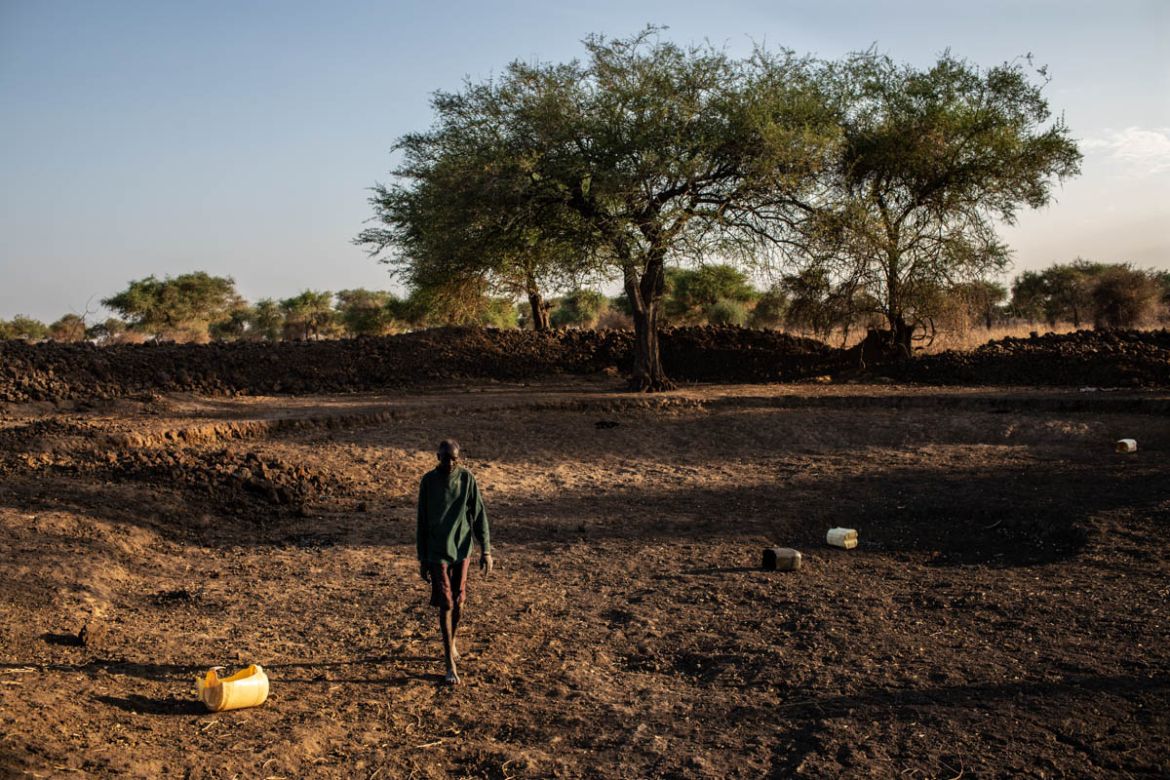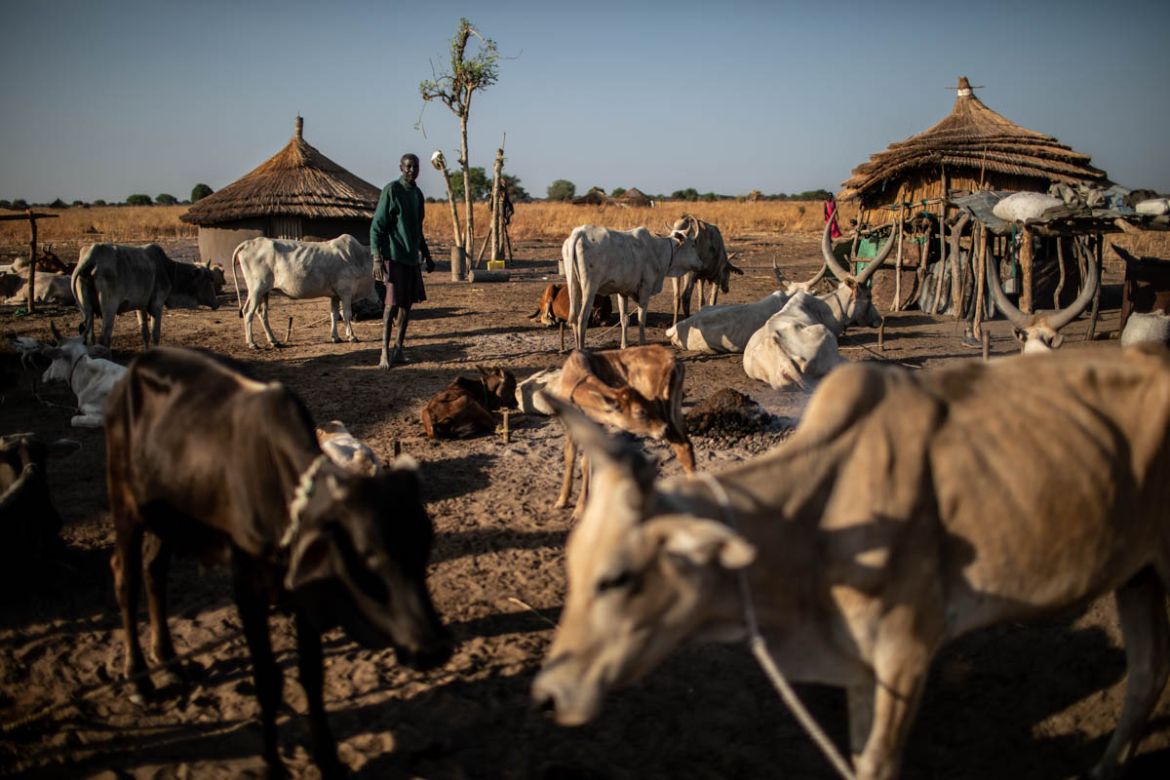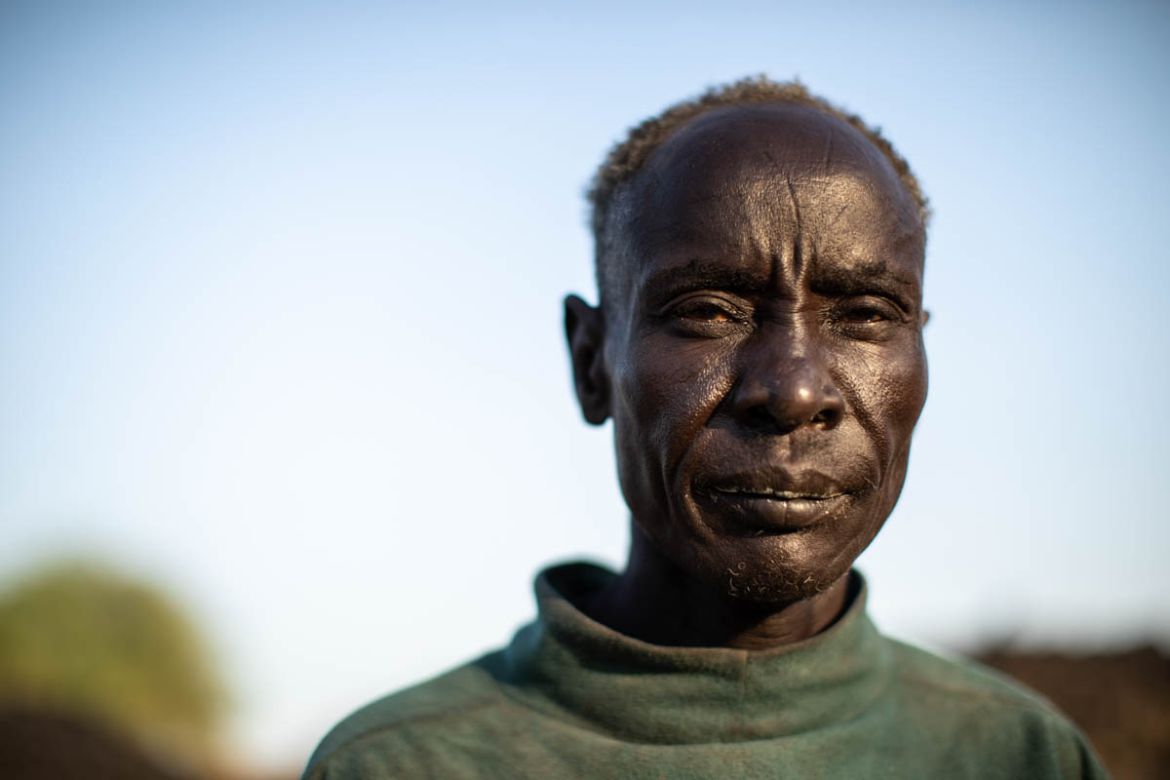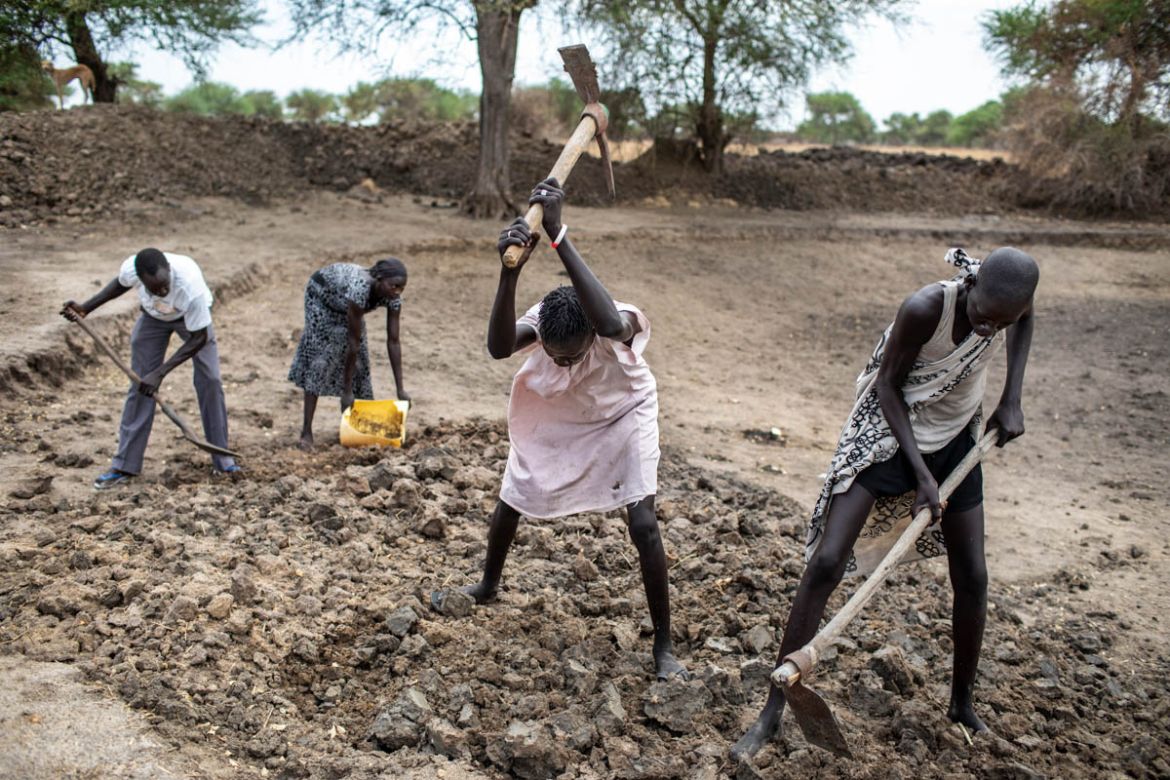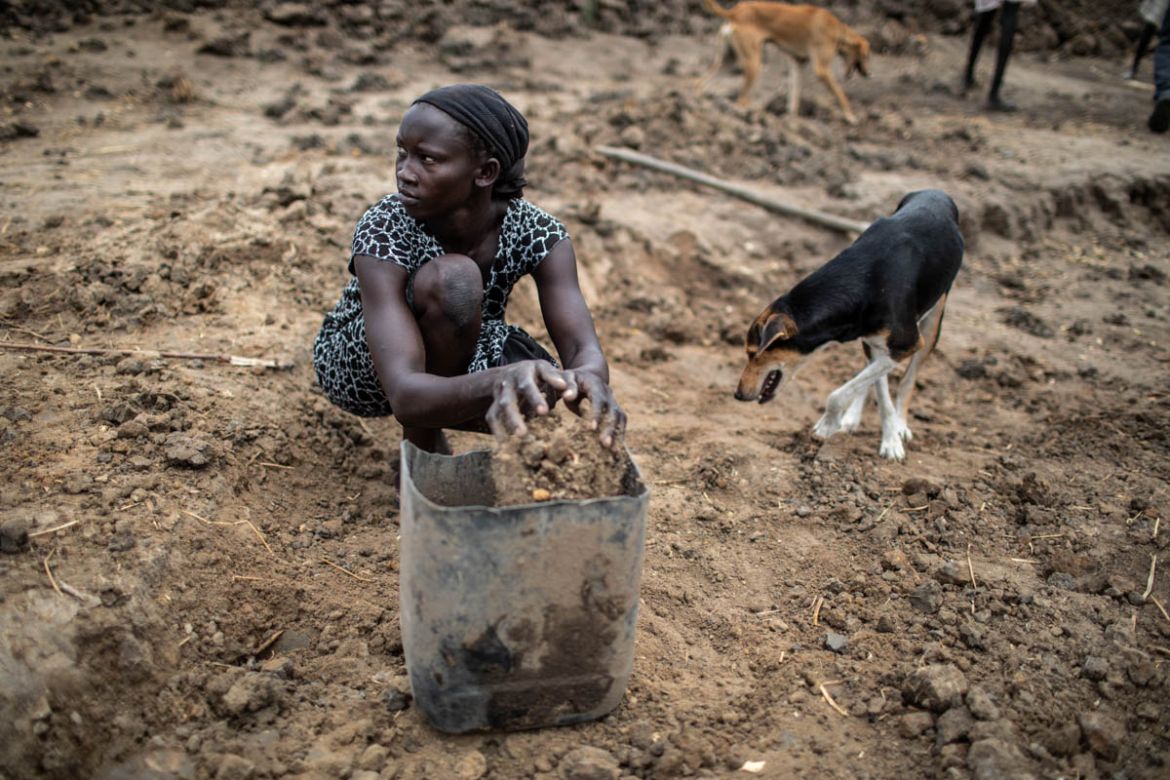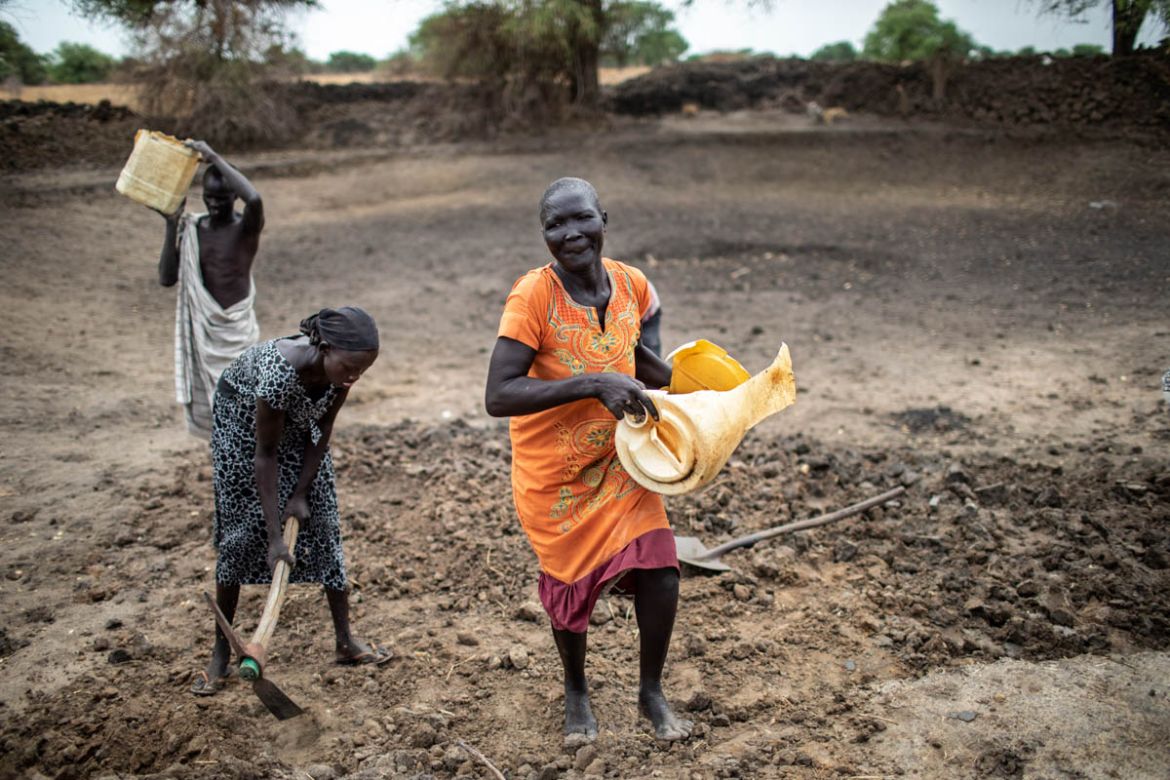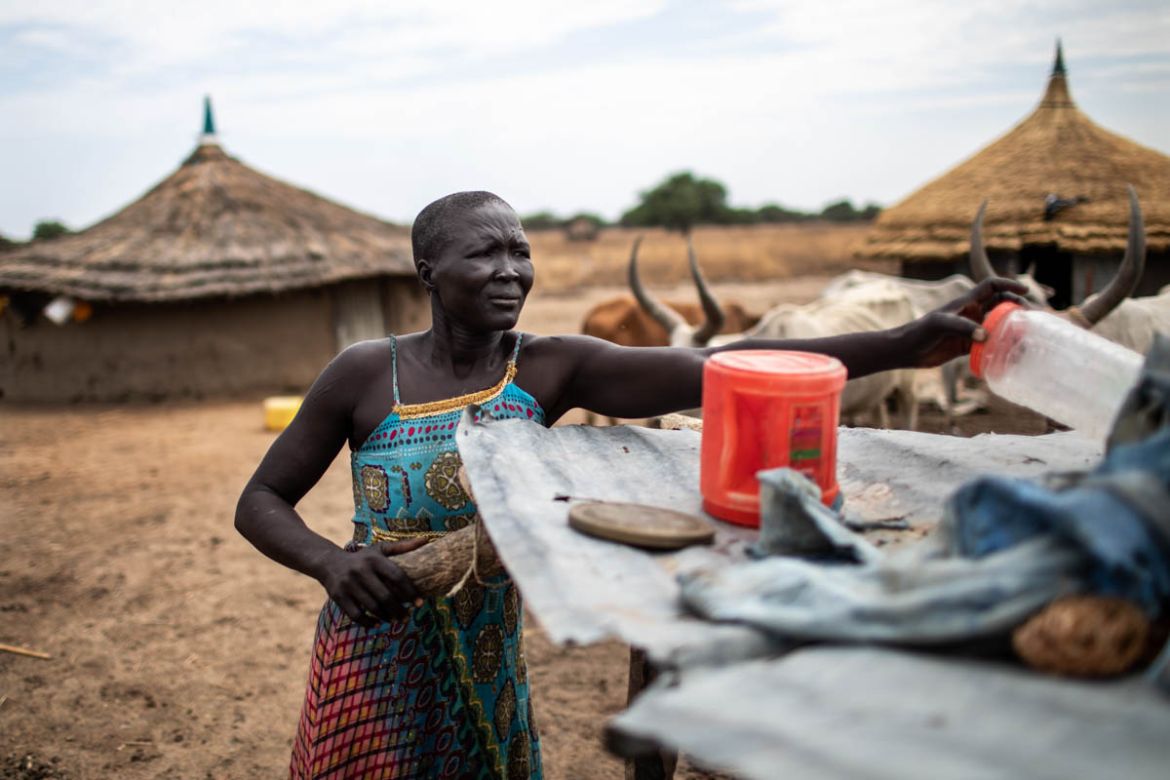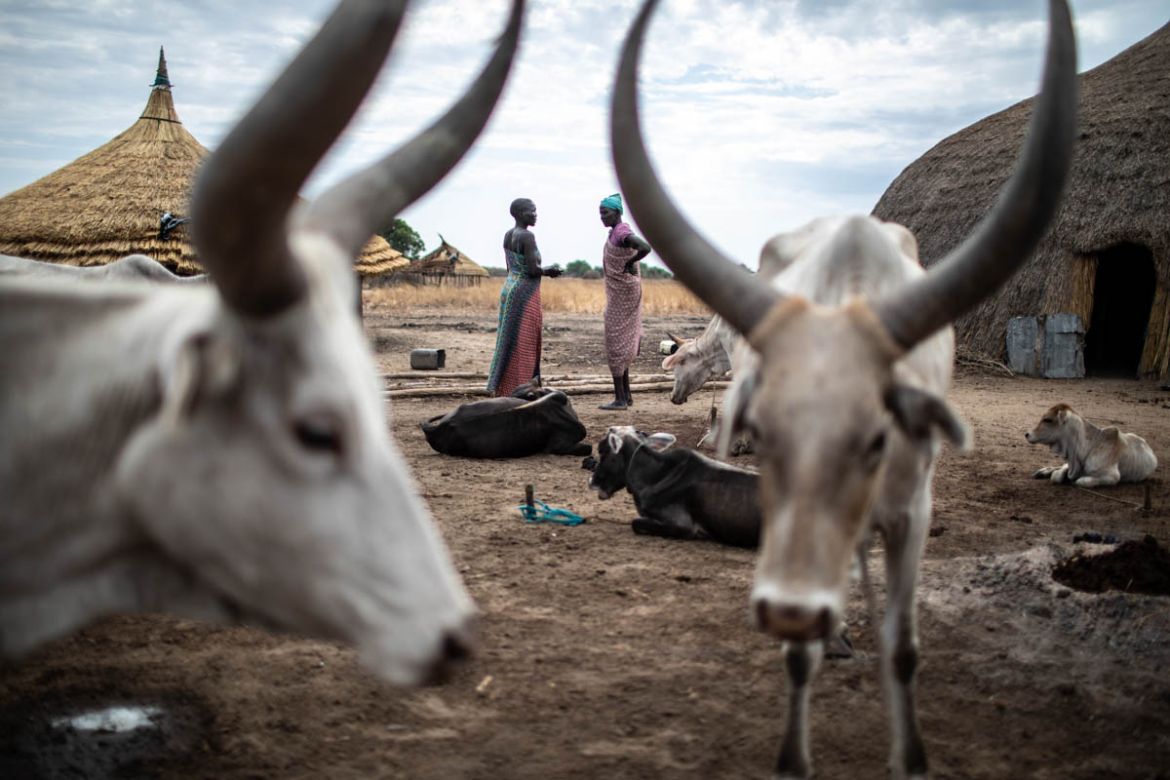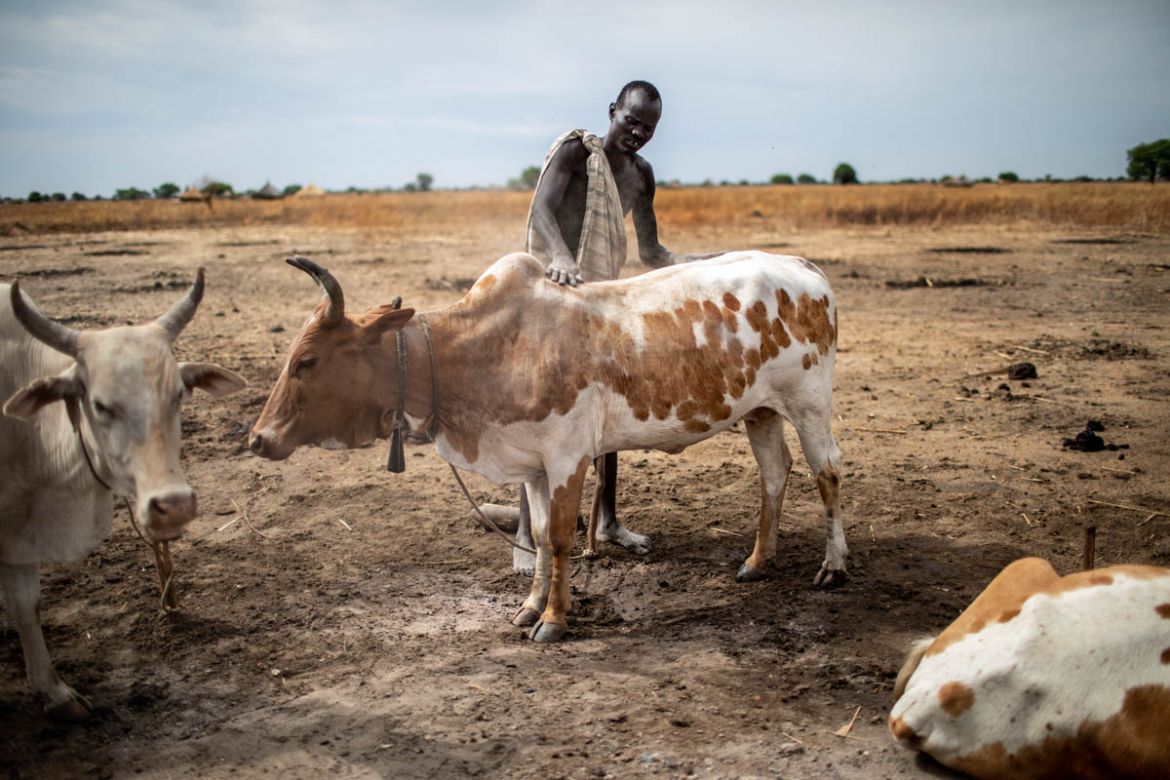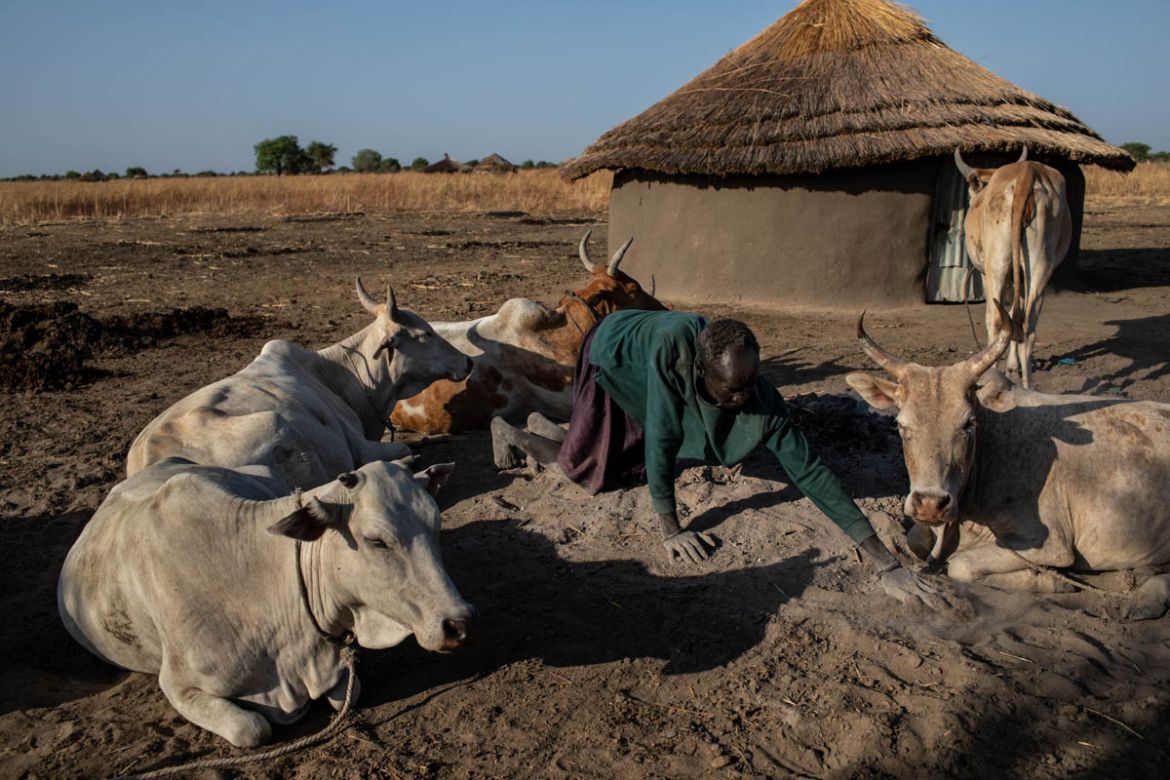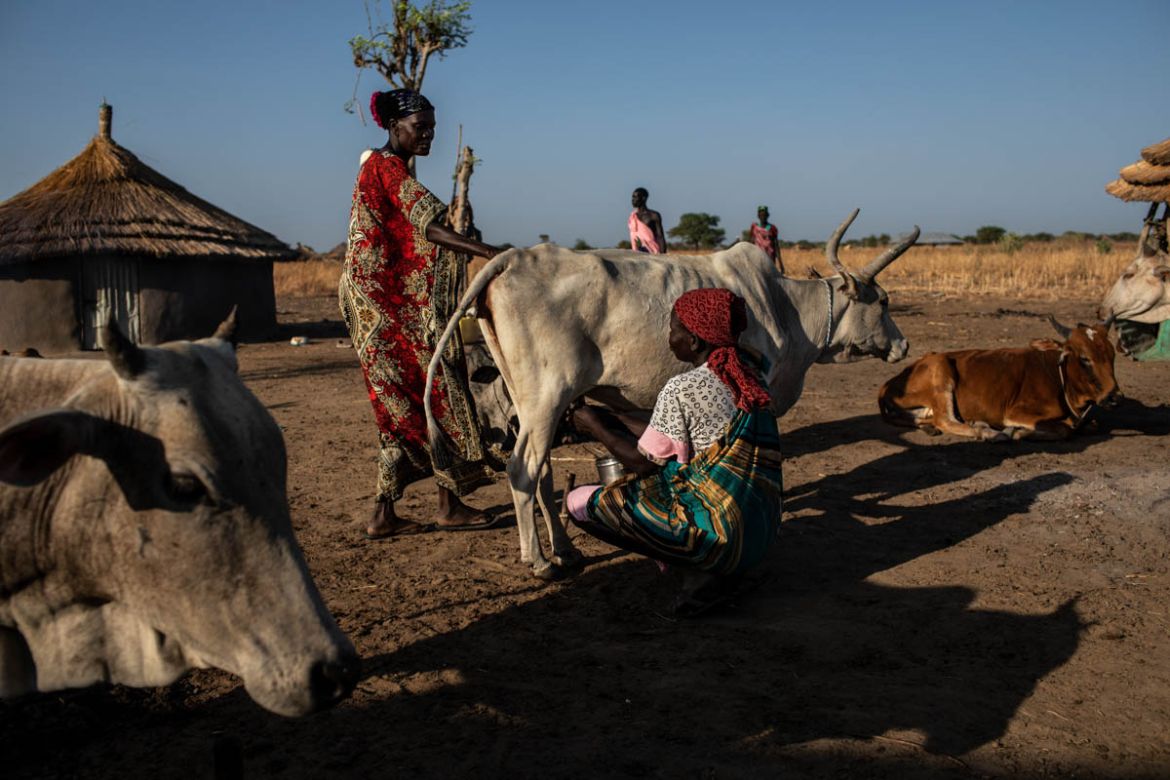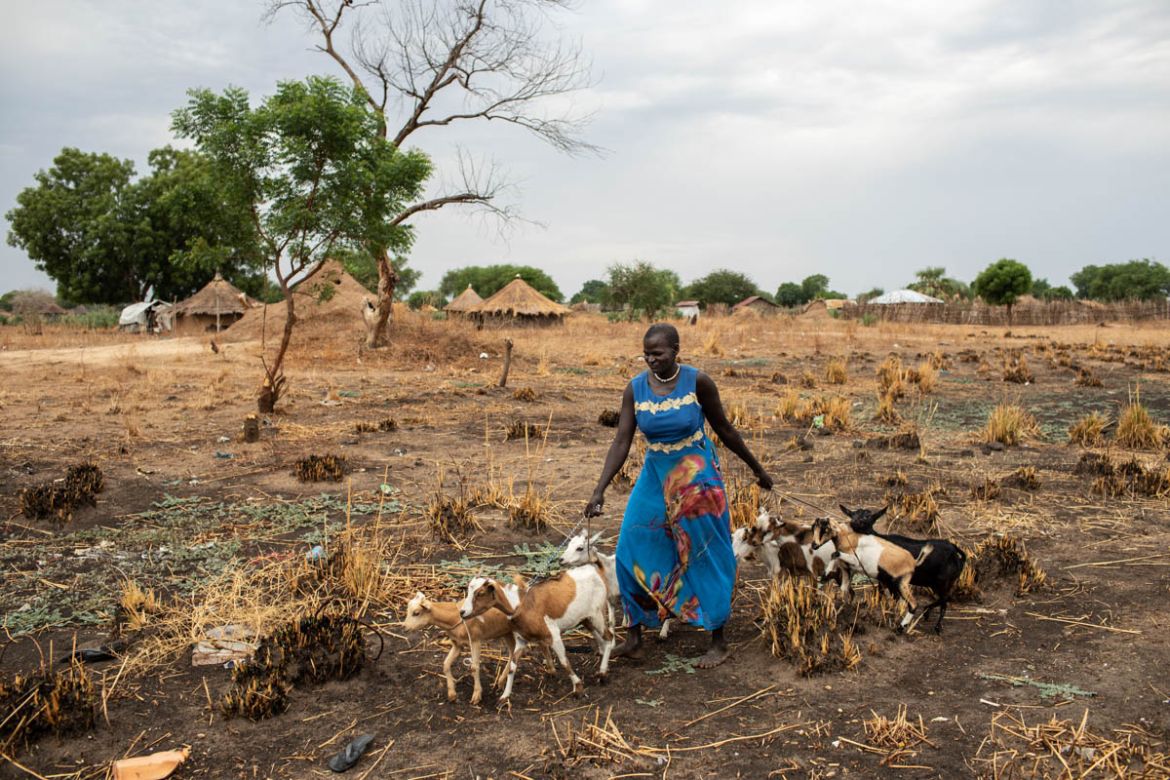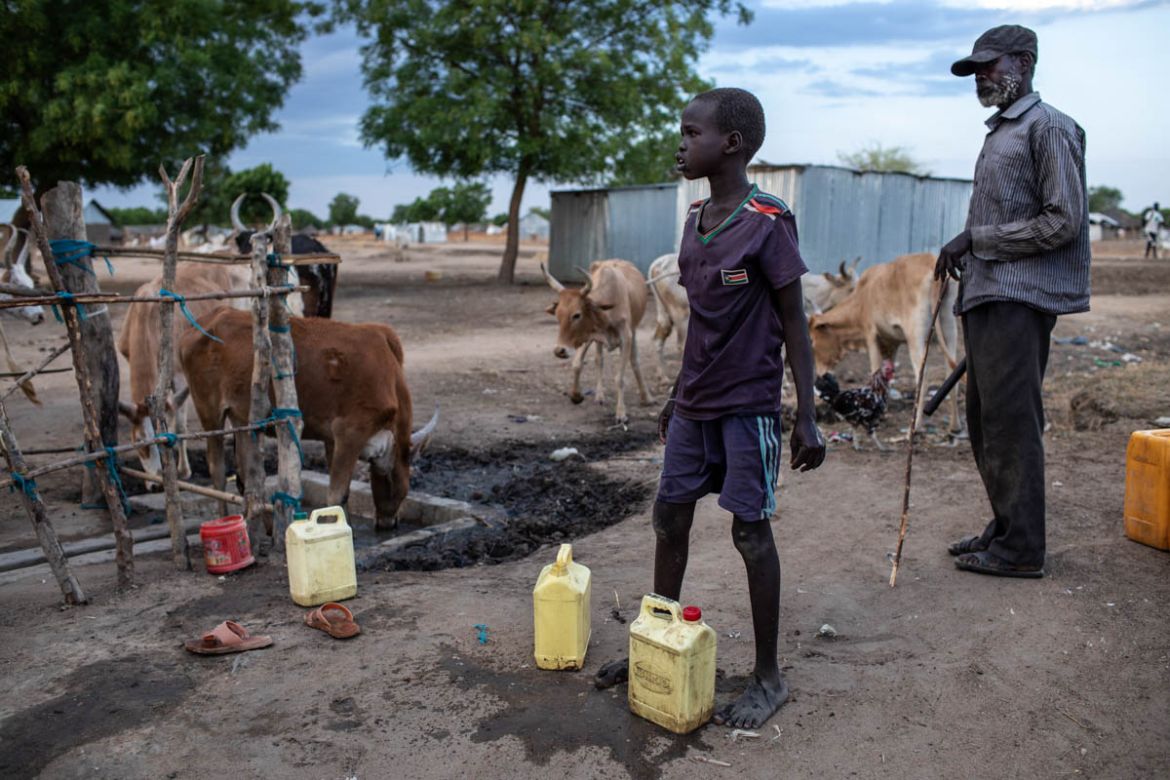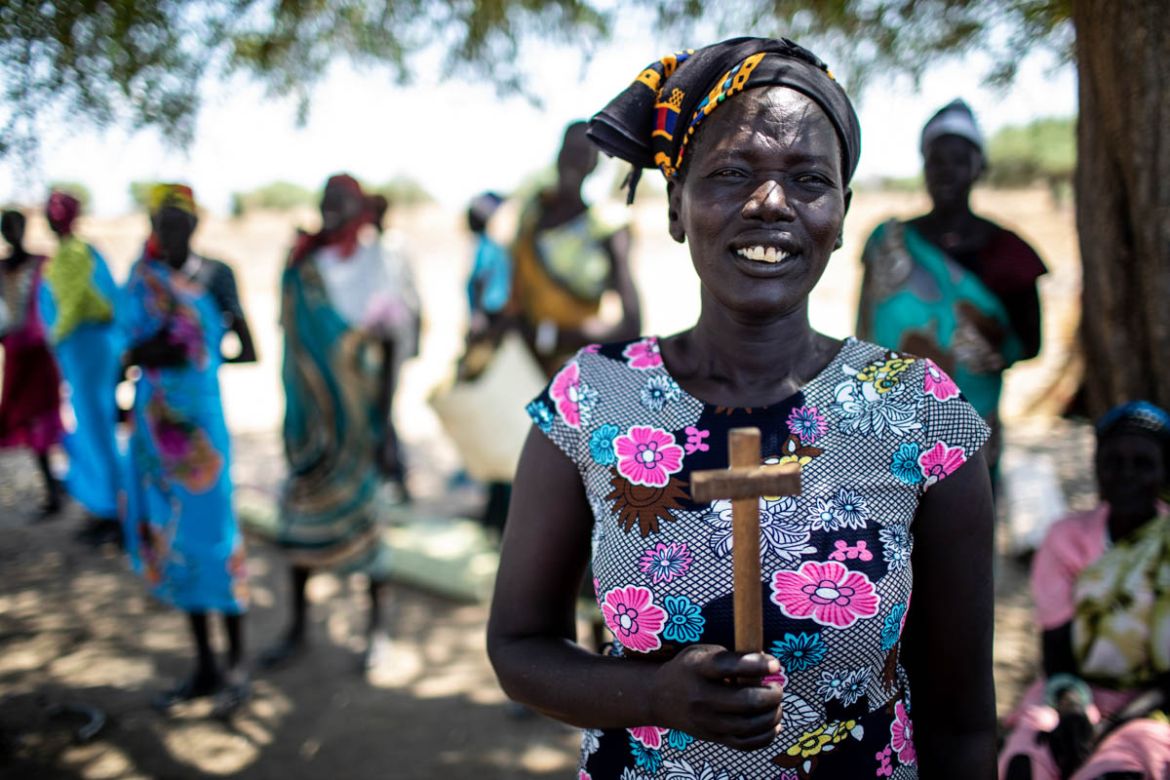In Pictures
South Sudan: Building an oasis for the approaching drought
Residents of a village in South Sudan are digging a pond to ensure survival of their livestock in the dry season.
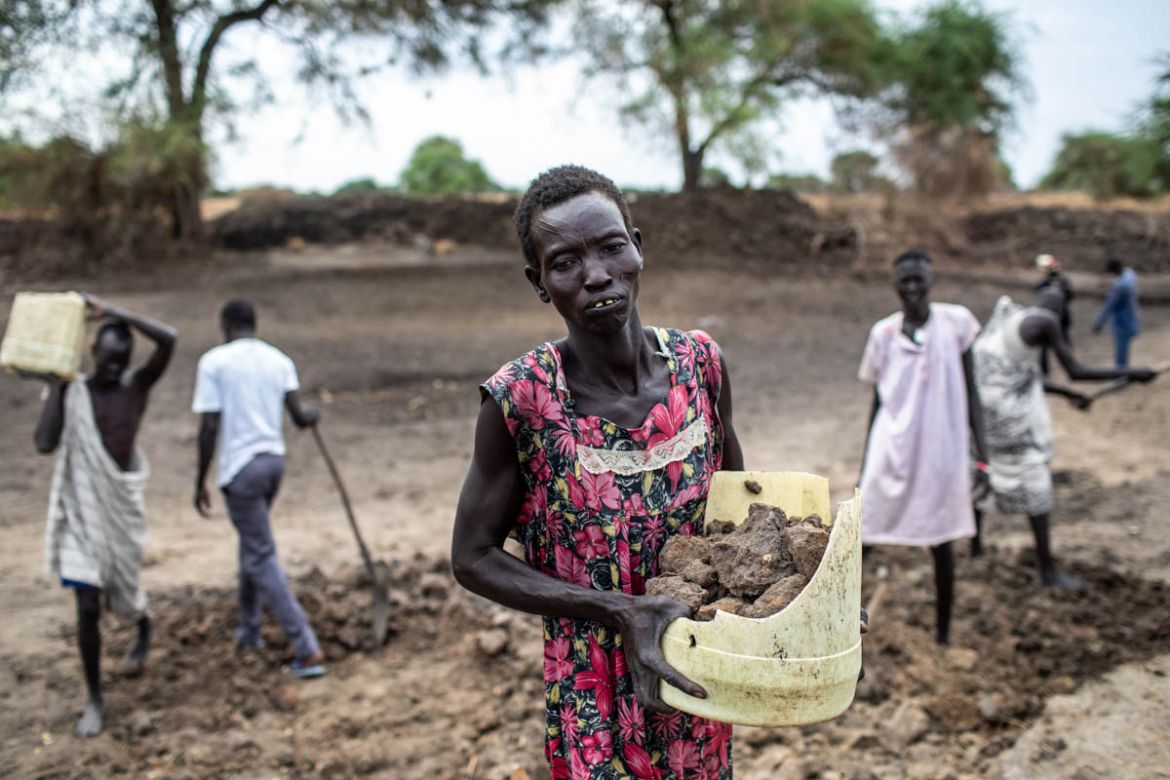
Ruar Leek, South Sudan – Ruar Leek village in Jonglei state suffers from harsh drought during South Sudan’s dry season, leaving the earth parched and the local watering holes empty.
Pastoralist herders can be forced to drive their cattle for kilometres to access water and green pasture.
But now, the village is collaborating to find a solution that will provide enough water to help sustain Ruar Leek through the dry months.
“We’re digging a pond so that our cattle can get water nearby,” said James Jongkuch Nyang.
The civil war in South Sudan has not only resulted in huge death and displacement figures, but has also destroyed facilities such as schools and clinics, while the lack of state services has allowed other infrastructure to fall into disrepair.
